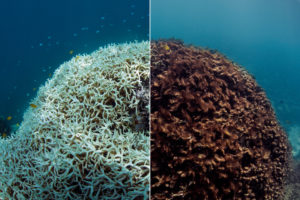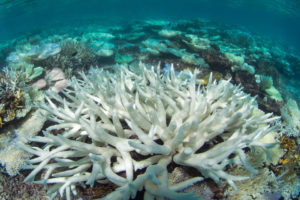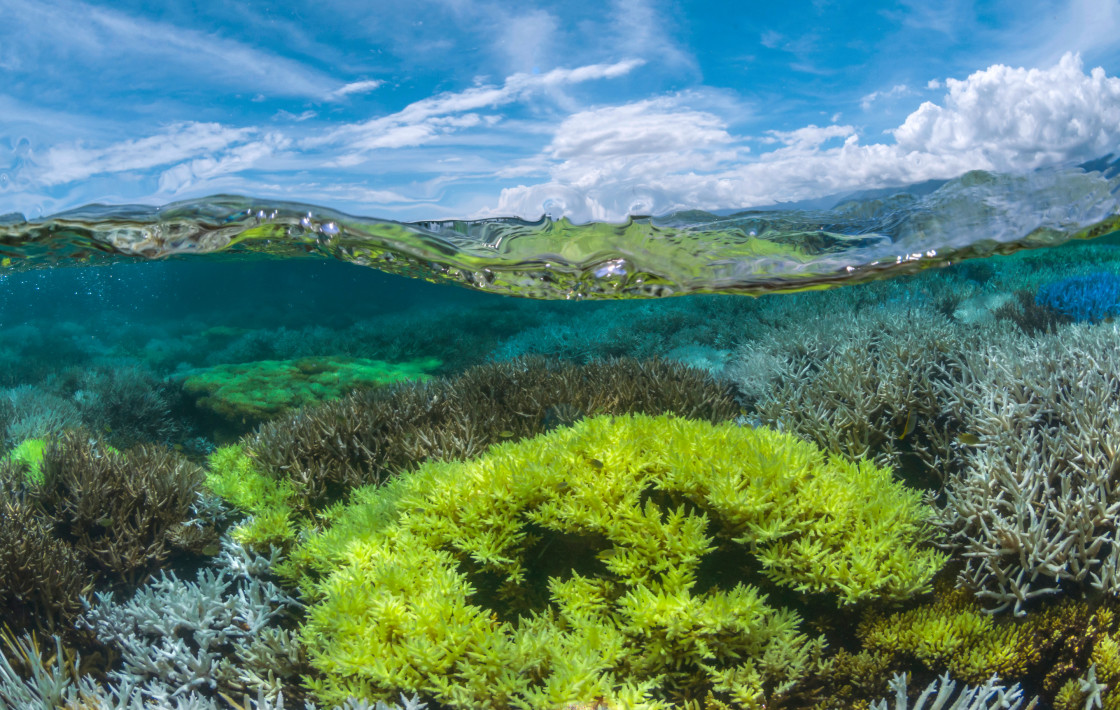If you are 40 years old today, plan to retire at 65 years of age and dive the reefs you’ve always wanted to dive, you’re going to be very, very disappointed.
We recently hosted a screening of the Netflix Documentary “Chasing Coral”. The process of preparations for this, as well as our Coral Restoration Expedition have been an educational experience. Today, it seemed appropriate to share some of those our findings.

Reef Stats
- Large sections of the Great Barrier Reef were destroyed – everyone was shocked.
- But 97% of the staghorn coral in Florida is already gone – did you know?
Chasing Coral
- During the free screening of the Chasing Coral movie,
- 40 were spots available.
- 29 tickets were taken.
- 19 attended.
- If those 19 people had 5 friends watch the movie, we could reach 95 people.
If 95 more showed it to 5 people they knew, we’d be at 475.
If those 475 showed it to 5 people they knew, we’d be at 2,385, etc. - If any one of those 19 could host a larger event, those numbers would increase exponentially.
Ad Stats
- We have had 6 spots available for our Coral Restoration Expedition since May, 2017.
- We advertised to 632 certified divers in the state of Colorado to go on this trip.
- 1 signed up.
- 7 local newspapers were notified of our efforts and movie screening.
- 0 published our press releases.
These are interesting stats, but surprisingly, not even the shocking reality of the following:

More Stats
- It has been proven that if the ocean temperature raises 2 degrees, corals will die. Permanently.
- In 25 years, our oceans are predicted to heat 2-3 degrees Fahrenheit.
- By 2050, our reefs may completely die
- The corals that provide food, shelter and breeding grounds for fish will disappear.
- The fish will also disappear.
- Economies will fall.
- Our ocean absorbs 93% of the heat expelled on land/air.
- The ocean cannot dispel enough heat to protect the corals.
We must reduce the amount of heat expelled in order to keep the oceans healthy.
The Future
There is still hope, but we are in the critical hours. Change is necessary and inevitable. You may ask yourself “What can I do”? “How can I help”? “Is it even worth it”? “Will it even make a difference”?
Yes, you can make a difference, Yes, it is worth it. And yes, it’s time to start. Today.
What can you do?
- Start by sharing the Netflix Movie “Chasing Coral”
- Check out the Quick Action Guide
- Cut down your carbon footprint by
- recycling
- limiting your drive to work and consolidating errands
- replacing old appliances with Energy Star appliances
- turn the lights out
- ride your bike instead
- replace paper or plastic, use reusable bags.
How can you help?
- Talk to your local politicians and push for 100% clean energy
- Reduce or eliminate your meat consumption (land and sea!)
- Help us restore the corals
- Learn more and act!
Change is necessary. Are you in?
Share this article:

